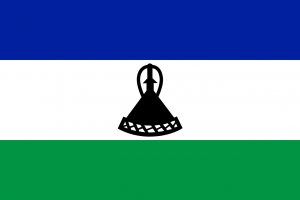Language/Southern-sotho/Grammar/Describing-Verbs
| ◀️ Describing Nouns — Previous Lesson | Next Lesson — Common Foods ▶️ |
Introduction[edit | edit source]
Welcome to the lesson on Adjectives and Adverbs in Southern Sotho, where you will learn how to describe verbs using adverbs.
In the previous lesson, you learned about using adjectives to describe nouns. Now, we will continue with the use of adjectives and adverbs in Southern Sotho grammar and expand it to describe verbs.
Let's get started!
Adverbs in Southern Sotho
Adverbs are words that describe verbs, adjectives, and other adverbs. In Southern Sotho, adverbs usually end in "-ha", and they are formed from adjectives by replacing the final "-e" with "-a". For example:
| Adjective | Adverb | Translation |
|---|---|---|
| tša e ntle | tše ntlahê | very beautiful |
| tša e kgolo | tše kgolaha | very big |
| tša e khutšo | tše khutšohê | very fast |
As you can see, the adverb is formed by adding "-ha" to the adjective's stem, but when the adjective ends in "-e", it is replaced by "-a".
Position of Adverbs in a Sentence
In Southern Sotho, adverbs usually come before the verb, as in English. However, they can also be placed at the end of the sentence for emphasis. For example:
- Ke tla bona hore o tla khutšo khutšohê. (I will see that you run very fast.)
- Ke tla bona hore o tla khutšohê khutšo. (I will see that you run fast very.)
As you can see, the position of the adverb changes the emphasis of the sentence.
Comparative and Superlative Forms of Adverbs
Just like adjectives, adverbs can also have comparative and superlative forms in Southern Sotho. Here is how they are formed:
- Comparative form: add the prefix "bo-" to the adverb. For example:
| Adverb | Comparative | Translation |
|---|---|---|
| ntlahê | bo-ntlwa | more beautifully |
| kgolaha | bo-kgolwa | bigger |
| khutšohê | bo-khutšwa | faster |
- Superlative form: add the prefix "e" to the adverb. For example:
| Adverb | Superlative | Translation |
|---|---|---|
| ntlahê | entlwa | most beautifully |
| kgolaha | ekgolwa | biggest |
| khutšohê | ekhutšwa | fastest |
You can use the comparative and superlative forms of adverbs to compare actions and describe the intensity of verbs.
Summary
In this lesson, you learned about adverbs in Southern Sotho and how to use them to describe verbs. You also learned about the position of adverbs in a sentence and how to form comparative and superlative forms.
With this knowledge, you are now able to describe actions and emphasize their intensity in Southern Sotho.
Good job!
Other Lessons[edit | edit source]
- Past Tense
- Plurals
- Basic Sentence Structure
- Negating Sentences
- Noun Classes
- Personal Pronouns
- Pronouns
- Asking Questions
- Present Tense
| ◀️ Describing Nouns — Previous Lesson | Next Lesson — Common Foods ▶️ |

